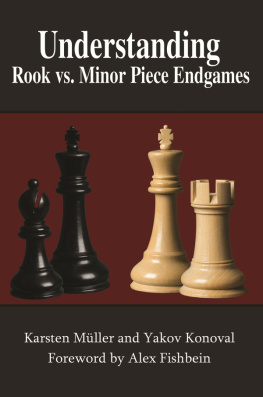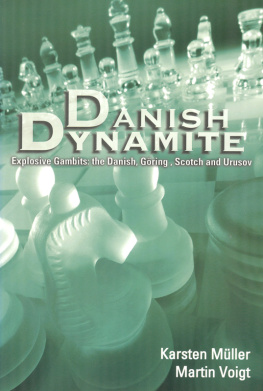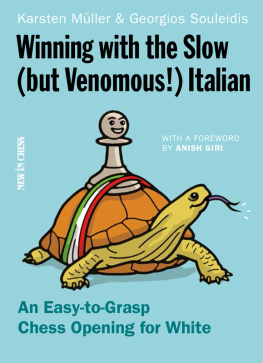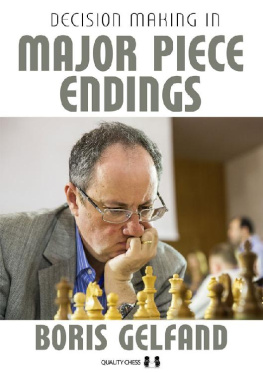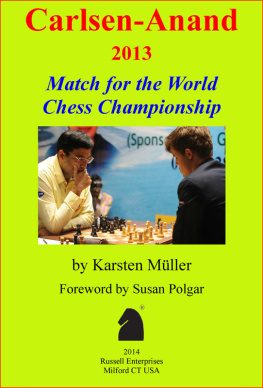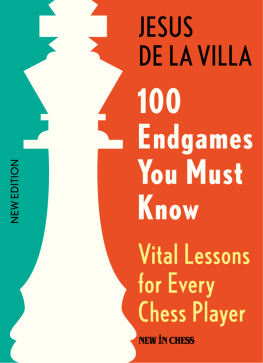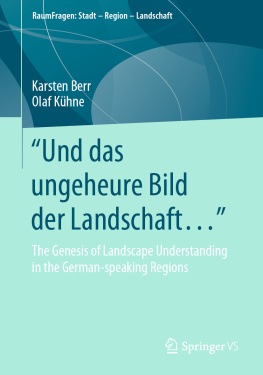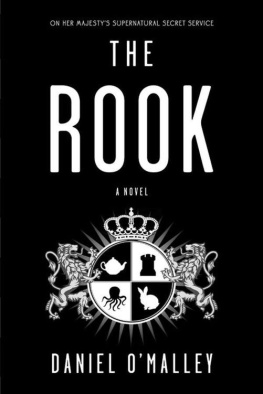Karsten Müller - Understanding Rook vs. Minor Piece Endgames
Here you can read online Karsten Müller - Understanding Rook vs. Minor Piece Endgames full text of the book (entire story) in english for free. Download pdf and epub, get meaning, cover and reviews about this ebook. publisher: Russell Enterprises, Inc., genre: Children. Description of the work, (preface) as well as reviews are available. Best literature library LitArk.com created for fans of good reading and offers a wide selection of genres:
Romance novel
Science fiction
Adventure
Detective
Science
History
Home and family
Prose
Art
Politics
Computer
Non-fiction
Religion
Business
Children
Humor
Choose a favorite category and find really read worthwhile books. Enjoy immersion in the world of imagination, feel the emotions of the characters or learn something new for yourself, make an fascinating discovery.
- Book:Understanding Rook vs. Minor Piece Endgames
- Author:
- Publisher:Russell Enterprises, Inc.
- Genre:
- Rating:3 / 5
- Favourites:Add to favourites
- Your mark:
- 60
- 1
- 2
- 3
- 4
- 5
Understanding Rook vs. Minor Piece Endgames: summary, description and annotation
We offer to read an annotation, description, summary or preface (depends on what the author of the book "Understanding Rook vs. Minor Piece Endgames" wrote himself). If you haven't found the necessary information about the book — write in the comments, we will try to find it.
Karsten Müller: author's other books
Who wrote Understanding Rook vs. Minor Piece Endgames? Find out the surname, the name of the author of the book and a list of all author's works by series.
Understanding Rook vs. Minor Piece Endgames — read online for free the complete book (whole text) full work
Below is the text of the book, divided by pages. System saving the place of the last page read, allows you to conveniently read the book "Understanding Rook vs. Minor Piece Endgames" online for free, without having to search again every time where you left off. Put a bookmark, and you can go to the page where you finished reading at any time.
Font size:
Interval:
Bookmark:

Understanding Rook versus Minor Piece Endgames
by Karsten Mller and Yakov Konoval
ISBN: 978-1-949859-11-9 (print)
ISBN: 978-1-949859-12-6 (eBook)
Copyright 2019
Karsten Mller and Yakov Konoval
All Rights Reserved
No part of this book may be used, reproduced, stored in a retrieval system or transmitted in any manner or form whatsoever or by any means, electronic, electrostatic, magnetic tape, photocopying, recording or otherwise, without the express written permission from the publisher except in the case of brief quotations embodied in critical articles or reviews.
Published by:
Russell Enterprises, Inc.
P.O. Box 3131
Milford, CT 06460 USA
http://www.russell-enterprises.com
Cover by Janel Lowrance
Printed in the United States of America

Table of Contents
Chapter 1
Rook versus Knight Endgames
Chapter 2
Rook versus Bishop Endgames
Chapter 3
Rook versus Two Knights Endgames
Chapter 4
Rook versus Two Bishops Endgames
Chapter 5
Rook versus Bishop + Knight Endgames
Chapter 6
Rook + Knight versus Rook Endgames
Chapter 7
Rook + Bishop versus Rook Endgames
Chapter 8
Rook + Minor Piece versus
Rook + Minor Piece Endgames
Chapter 9
Endgame Studies
Bibliography
Books
Dvoretskys Endgame Manual, Mark Dvoretsky, Russell Enterprises 2003, 4th edition 2014
Encyclopedia of Chess Endings (ECE)
Fundamental Chess Endings, Mller and Lamprecht, GAMBIT 2001
How to Play Chess Endgames, Mller and Pajeken, GAMBIT 2008
Nunns Chess Endings, John Nunn, GAMBIT 2010
Understanding Chess Endgames, John Nunn, GAMBIT 2009
Understanding Minor Piece Endgames, Mller and Konoval, Russell Enterprises 2018
Understanding Rook Endgames, Mller and Konoval, GAMBIT 2016
DVDs
Chess Endgames 1-14, Mller, ChessBase Fritztrainer DVDs, Hamburg 2006-2013
Periodicals and Magazines
ChessBase Magazine (CBM) and CBM Blog at ChessBase.com
Chess Informant
Chess Today
Endgame Corner at ChessCafe.com
New in Chess Magazine
The Week in Chess
Databases and Programs
ChessBase Lets Check online database
ChessBase MEGABASE 2018
Harold van der Heijdens study database
Komodo 12
Konoval five-, six- and seven-piece tablebases
Lomonosov seven-piece tablebase
Nalimov five-, and six-piece tablebases
Stockfish 9
Syzygy five-, six- and seven-piece tablebases
Preface
Knowing the abilities and limitations of the minor pieces and their cooperation with a rook is very valuable for mastering the secrets of the royal game and this can be studied best in the endgame. There are already many books dealing with the issue, so why have we added another one to the collection? Computer technology is getting all the time and it is advancing endgame theory.
Yakov Konoval and Marc Bourzutschky have created seven-piece tablebases and so the definitive verdict on all such positions and optimal lines are certainly known. Now seven-piece Lomonosov Tablebases are available online. They allow the evaluation of any given position. But Marc and Yakov have developed additional software which allows one to obtain additional interesting data automatically such as long wins, zugzwangs, typical positions, etc.. Thanks to this software, there are many new discoveries in this book.
As the previous two volumes in this series, Understanding Rook Endgames and Understanding Minor Piece Endgames, this volume follows a dual philosophy. We deal with the seven-piece endings in great detail. They are often so deep that pre-tablebase analysis almost always contains mistakes. Many new discoveries are revealed here. We have also added the important five- and six-piece endings a club player should know. But to really understand the fight of minor piece against and with rooks, these theoretical positions are of course not enough. So we have added subchapters on the principles of each material configuration. Finally we want to thank Vladimir Makhnychev and Victor Zakharov for assisting with access to the Lomonosov Tablebases and Alex Fishbein for his excellent foreword.
Karsten Mller and Yakov Konoval
March 2019
Foreword
When I was growing up, my bedtime story books included Averbakhs endgame books. Today, German grandmaster Karsten Mller is no less an endgame authority and connoisseur than Averbakh back in the day. Karsten Mllers latest work, Understanding Rook and Minor Piece Endings, co-written with Yakov Konoval, is especially interesting because of the variety of the positions it covers. The book before you now will take you into a mysterious and charming world. The actors in these fairy-tale stories are the rook, the bishop, and the knight.
As an endgame junkie myself, I agree with Jos Ral Capablanca that the student should start with study of the endgame, before the opening and middlegame. But why is that? And, more importantly, how should you study the endgame and what do you need to gain from that study?
For me, a valuable endgame lesson is one where I come away with a deeper understanding of, or rather a deeper feeling for, what the pieces can do. I want the pieces to come to life before my eyes, so that I know when they are strong and when they are weak, when they should be sacrificed for a higher purpose or when they deliver the crushing blow. Positions with minimal material offer the best glimpse into the geometry of the chessboard. When only the rook and knight remain, for example, it is easier to see who they really are. That is why I study the endgame.
Karsten Mller offers many such lessons in this book. He starts, in fact, with the rook vs knight pawnless ending, and shows that it is not as simple as commonly thought. I was surprised how often even very strong grandmasters made mistakes in what looks like a book position, and I learned something about what to do with the knight when it is in danger of ending up on the vulnerable g2 (or g7, b2, b7) square.
My least favorite part of endgame study is memorization of exact positions. I almost never do it! I have seen many books that classify their material into an endless set of exact positions, most of which will probably never occur in your games. Mller is very careful to avoid this pitfall. He has structured the book around ideas rather than theoretical positions. To be sure, there are a couple of cases where the position and method need to be memorized, and on those rare occasions he makes a point to note that. But most examples are real-life games (not even endgame studies), where actual humans play, often making mistakes. A lot of positions are borderline cases, straddling between a win and a draw, and that is where the struggle between the pieces becomes the most fascinating and instructive.
There were quite a few revelations for me in this book. For example, the rook vs. bishop fortress with pawns on one side is not as easy to hold as I had been taught (position 02.58) or it can be altogether losing (position 02.60). There is long analysis which you are not going to remember, and on no account should you try to memorize it. Sometimes there are not any obvious generalizations to be made. But positions with no clear guidelines are perhaps even more valuable than positions in which everything can be broken down logically. When you study these border cases, you will improve your endgame intuition and come closer to the stage where the pieces and their possibilities become second nature to you. And besides, positions with a real struggle occur more often than positions where everything is already well known.
Next pageFont size:
Interval:
Bookmark:
Similar books «Understanding Rook vs. Minor Piece Endgames»
Look at similar books to Understanding Rook vs. Minor Piece Endgames. We have selected literature similar in name and meaning in the hope of providing readers with more options to find new, interesting, not yet read works.
Discussion, reviews of the book Understanding Rook vs. Minor Piece Endgames and just readers' own opinions. Leave your comments, write what you think about the work, its meaning or the main characters. Specify what exactly you liked and what you didn't like, and why you think so.

